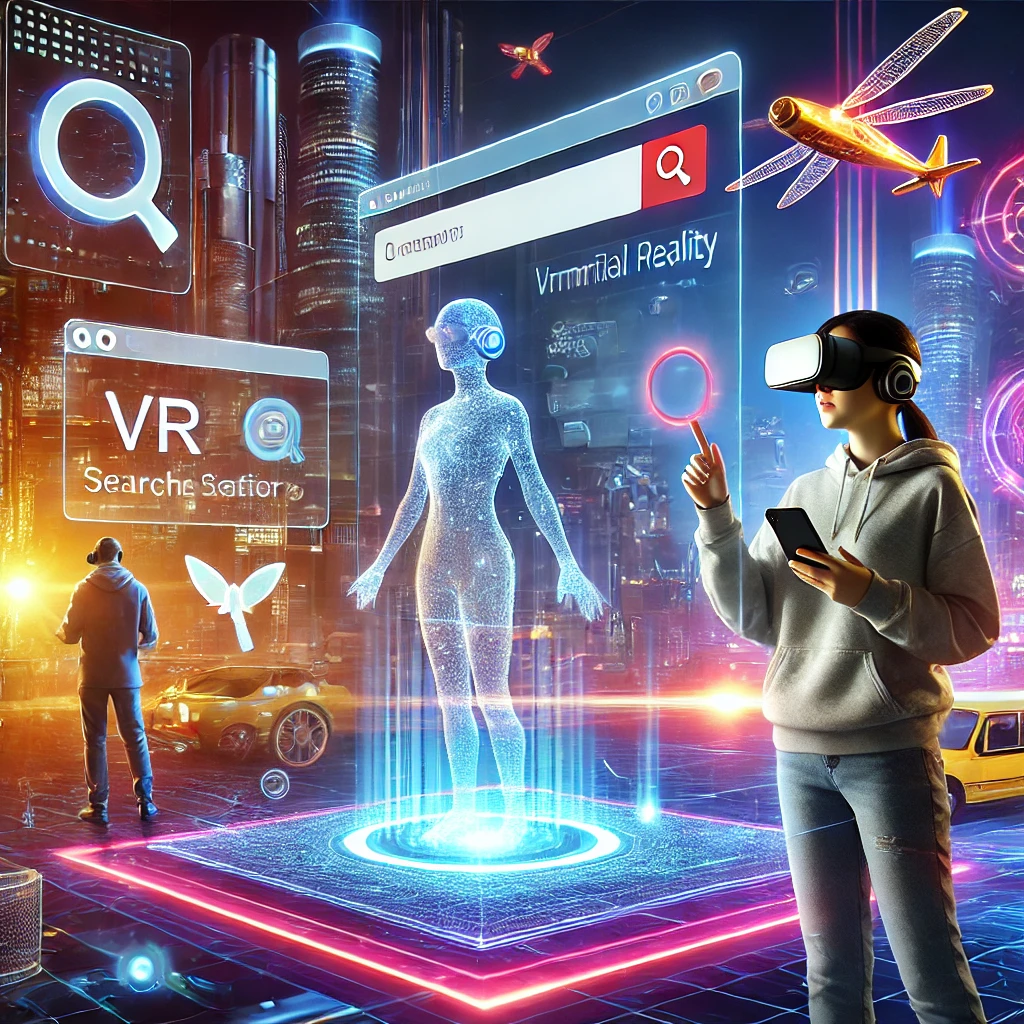
Augmented Reality (AR) and Virtual Reality (VR) are transforming how users interact with digital content, and search engines are adapting to these changes. As Google and other search engines prioritize user experience, AR and VR content is becoming an important factor in search engine ranking.
In this article, we’ll explore how AR and VR will impact SEO, search engine rankings, and digital marketing strategies.
1. The Rise of AR & VR in Digital Content
With advancements in technology, AR and VR are no longer just for gaming. They are now integrated into e-commerce, education, real estate, and other industries. Google Lens, AR-powered product previews, and VR experiences on websites are influencing how search engines rank content.
2. AR & VR’s Role in Search Engine Optimization (SEO)
As AR and VR content becomes more popular, search engines are adjusting their algorithms to accommodate interactive and immersive content. Here’s how AR and VR can impact search engine rankings:
a. Enhanced User Engagement
Engagement metrics, such as dwell time and bounce rate, influence search rankings. Interactive AR filters and VR experiences keep users engaged for longer, signaling to search engines that the content is valuable.
b. Visual Search Optimization
With tools like Google Lens, visual search is becoming a key part of SEO. AR-powered search results allow users to interact with 3D objects, improving the user experience and increasing organic traffic for optimized websites.
c. Voice Search & AR Integration
As voice search grows, AR-based voice interactions will become essential. Optimizing for voice search and AR commands can enhance website rankings by making content more accessible.
3. Structured Data for AR & VR Content
Google prioritizes structured data, and AR/VR content will benefit from schema markup. Web developers can use:
- 3DObject schema for AR content
- VirtualLocation schema for VR environments
- Google’s Scene Viewer to embed AR objects
Properly formatted AR/VR content improves discoverability and enhances SERP (Search Engine Results Page) appearance.
4. The Impact of AR & VR on E-commerce SEO
AR and VR are revolutionizing e-commerce, making online shopping more interactive. Key SEO advantages include:
- AR product previews (e.g., trying on clothes with AR filters)
- VR store experiences (e.g., virtual showrooms)
- Reduced return rates (as users make better purchasing decisions)
Google ranks websites higher when they provide better UX, making AR/VR a powerful SEO tool for online retailers.
5. Mobile-First Indexing & AR Optimization
Google’s mobile-first indexing means AR content must be mobile-friendly. Websites using AR elements must ensure:
- Fast loading speeds
- Optimized 3D models
- Seamless mobile interactions
Failure to optimize AR experiences for mobile could lead to lower search rankings.
6. The Future of AR & VR in SEO
As AR and VR continue evolving, search engines will place more emphasis on immersive experiences. Businesses investing in AR/VR-friendly SEO strategies will gain a competitive advantage.
Key Takeaways:
✅ AR/VR boosts engagement and dwell time, improving SEO rankings
✅ Google Lens and visual search will make AR optimization essential
✅ Structured data and schema markup will improve AR/VR content visibility
✅ Mobile-first indexing will require AR-friendly website optimization
In the coming years, AR and VR will reshape search engine rankings, making it crucial for businesses to stay ahead with immersive SEO strategies.
